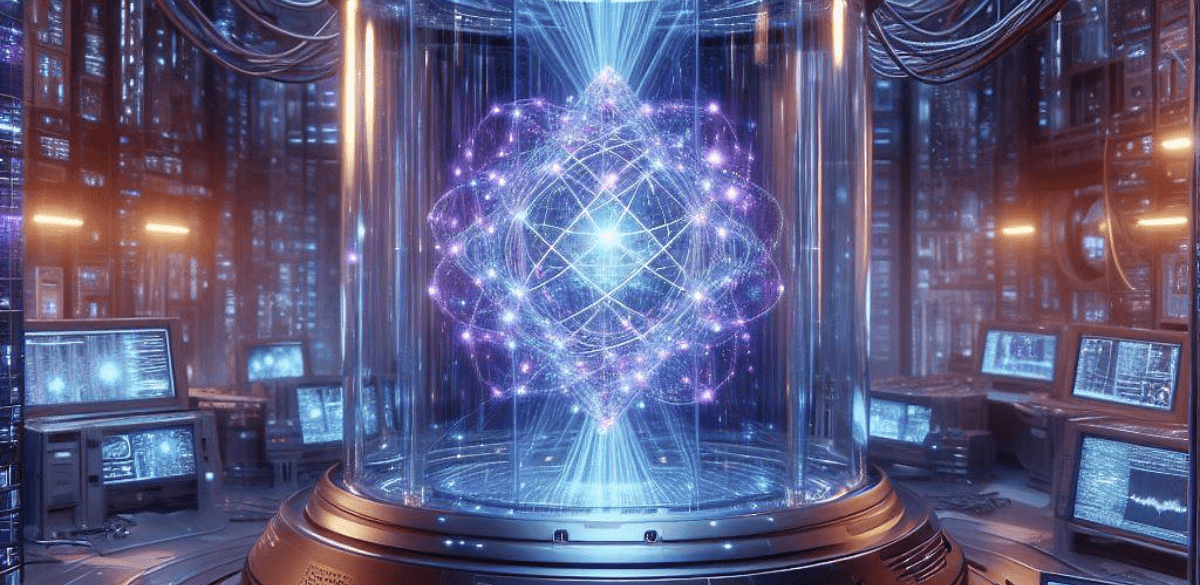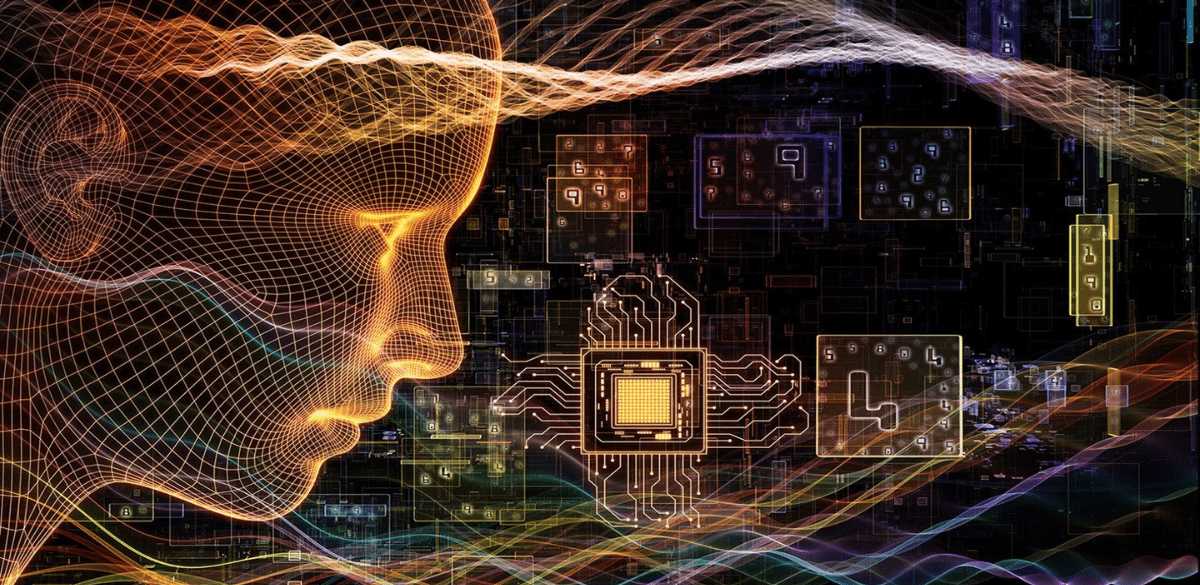Quantum AI, an amalgamation of quantum mechanics and advanced computational intelligence, stands at the forefront of innovation, promising unprecedented advancements across various domains.
Introduction to Quantum AI
What Is Quantum AI?
Quantum AI refers to the integration of quantum computing principles with artificial intelligence techniques. Quantum computing uses the principles of quantum mechanics to perform operations on data and solve complex problems in a fundamentally different way than classical computing.
In Quantum AI, quantum algorithms and techniques are applied to enhance AI tasks such as machine learning, optimization, and data analysis. The potential lies in the ability of quantum computers to handle and process vast amounts of data simultaneously, potentially speeding up computations for certain AI-related tasks, solving problems that are currently intractable for classical computers, and developing more efficient algorithms for various AI applications.
How To Choose Best Earbuds For You In 2024
What Is Quantum Computing?
Quantum computing is a new and rapidly developing field that harnesses the principles of quantum mechanics to perform computations. Unlike traditional computers, which rely on bits that can be either 0 or 1, quantum computers use qubits, which can exist in a superposition of both states simultaneously. This allows quantum computers to perform certain calculations much faster than classical computers, making them potentially game-changers for fields like drug discovery, materials science, and financial modeling.
learn in this key points :
Qubits:
Qubits are the fundamental units of quantum computing, just like bits are for classical computing.
- The basic unit of information in a quantum computer.
- Can exist in a superposition of 0 and 1 simultaneously.
- Represented as quantum systems like electrons, photons, or trapped ions.
Superposition:
- The ability of a qubit to be in multiple states at the same time.
- Allows quantum computers to explore many possibilities simultaneously, leading to faster calculations.
Entanglement:
- A phenomenon where two qubits become linked, even if they are separated by vast distances.
- Enables qubits to share information instantly, further speeding up calculations.
Quantum algorithms:
- Sets of instructions designed specifically for quantum computers.
- Leverage superposition and entanglement to solve problems that are intractable for classical computers.

Applications of quantum computing:
- Drug discovery: Simulating complex molecules to design new drugs and materials.
- Financial modeling: Making more accurate predictions about market trends.
- Cryptography: Breaking current encryption methods and developing new, quantum-resistant ones.
- Artificial intelligence: Training machine learning models faster and more efficiently.
Challenges of quantum computing:
- Building and maintaining stable qubits is difficult and expensive.
- Quantum algorithms are still in their early stages of development.
- Correcting errors in quantum calculations is a major challenge.
Overview of Artificial Intelligence (AI)
AI involves the development of algorithms enabling machines to simulate human-like intelligence, learning, and problem-solving capabilities. Artificial intelligence (AI) is a vast and rapidly evolving field of computer science that deals with the creation of intelligent agents, which are systems that can reason, learn, and act autonomously.
Integration of Quantum Computing and AI
The integration of quantum computing and AI holds significant promise for solving complex problems more efficiently. Quantum computing’s ability to process vast amounts of data and perform parallel calculations aligns well with the needs of AI algorithms.

Quantum computing can potentially enhance AI in several ways:
- Speed and Efficiency: Quantum computers can handle complex AI algorithms much faster than classical computers, accelerating tasks like optimization, pattern recognition, and complex data analysis.
- Improved Machine Learning: Quantum algorithms could enhance machine learning models by processing and analyzing large datasets more efficiently, potentially leading to more accurate predictions and faster training times.
- Enhanced Data Processing: Quantum computing’s ability to process and manipulate vast amounts of data simultaneously can significantly impact data-intensive AI applications, such as natural language processing and computer vision.
- New AI Algorithms: Quantum computing might inspire the development of new AI algorithms specifically tailored to leverage the strengths of quantum systems, unlocking novel approaches to problem-solving.
Deepfake: Best Technology In Wrong Hands.
Benefits of Quantum AI
1. Unprecedented Processing Speed:
- Quantum computers leverage superposition and entanglement to perform calculations exponentially faster than classical computers. This allows tackling previously intractable problems in areas like drug discovery, materials science, and finance.
2. Enhanced Machine Learning:
- Quantum AI can analyze vast datasets and identify complex patterns much faster, leading to more accurate and efficient machine learning algorithms. This can revolutionize fields like natural language processing, image recognition, and predictive analytics.
3. Superior Optimization:
- Quantum AI excels at solving complex optimization problems, especially in logistics, transportation, and scheduling. This can optimize resource allocation, reduce costs, and improve efficiency across various industries.
4. Resource Conservation:
- Although still in its infancy, quantum AI has the potential to reduce the energy consumption of certain tasks compared to classical computers. This could lead to more sustainable computing practices and reduced environmental impact.
5. Democratization of Quantum Computing:
- Quantum cloud platforms are emerging, allowing wider access to quantum computing capabilities for researchers and businesses. This could accelerate innovation and democratize the use of this powerful technology.
6. Breakthroughs in cryptography:
- Quantum AI could revolutionize cryptography, making current encryption methods obsolete. This necessitates development of new, quantum-resistant cryptography.
- Unforeseen Applications: The full potential of quantum AI is still unknown, with exciting possibilities in fields like materials design, personalized medicine, and artificial general intelligence waiting to be explored.

Challenges and Limitations In Quantum AI
- Hardware Reliability: Building and maintaining stable quantum hardware capable of reliably performing complex computations remains a substantial hurdle. Quantum systems are sensitive to noise, errors, and decoherence, making it difficult to preserve qubits’ delicate quantum states.
- Scalability: Scaling quantum systems to accommodate large-scale computations while maintaining coherence among qubits is a major challenge. As the number of qubits increases, so does the complexity of controlling and correcting errors.
- Algorithm Development: Designing quantum algorithms that can effectively harness the power of quantum computing for AI tasks is challenging. Creating quantum-friendly algorithms that outperform classical counterparts and are compatible with noisy quantum hardware requires significant expertise.
- Integration and Compatibility: Integrating quantum computing with existing AI frameworks and technologies poses compatibility issues. Bridging the gap between classical and quantum systems for seamless operation remains a challenge.
- Quantum Error Correction: Quantum systems are prone to errors, and developing robust error-correction techniques is crucial. Correcting errors without losing quantum information is a complex area of research.
- Expertise and Resources: Quantum AI demands expertise in both quantum computing and AI, which are specialized fields. The scarcity of skilled professionals and resources dedicated to this interdisciplinary domain is a limitation.
- Cost and Accessibility: Building and maintaining quantum hardware is expensive. Access to quantum computing resources for research and development is limited, hindering widespread exploration and experimentation in quantum AI.
Best iPhone To Buy In 2024: Become Future Proof.
Conclusion
Quantum AI represents a paradigm shift in technology, offering unparalleled computational capabilities and potential applications across various sectors. While challenges persist, the evolving landscape of quantum AI promises transformative advancements that could redefine the future.
